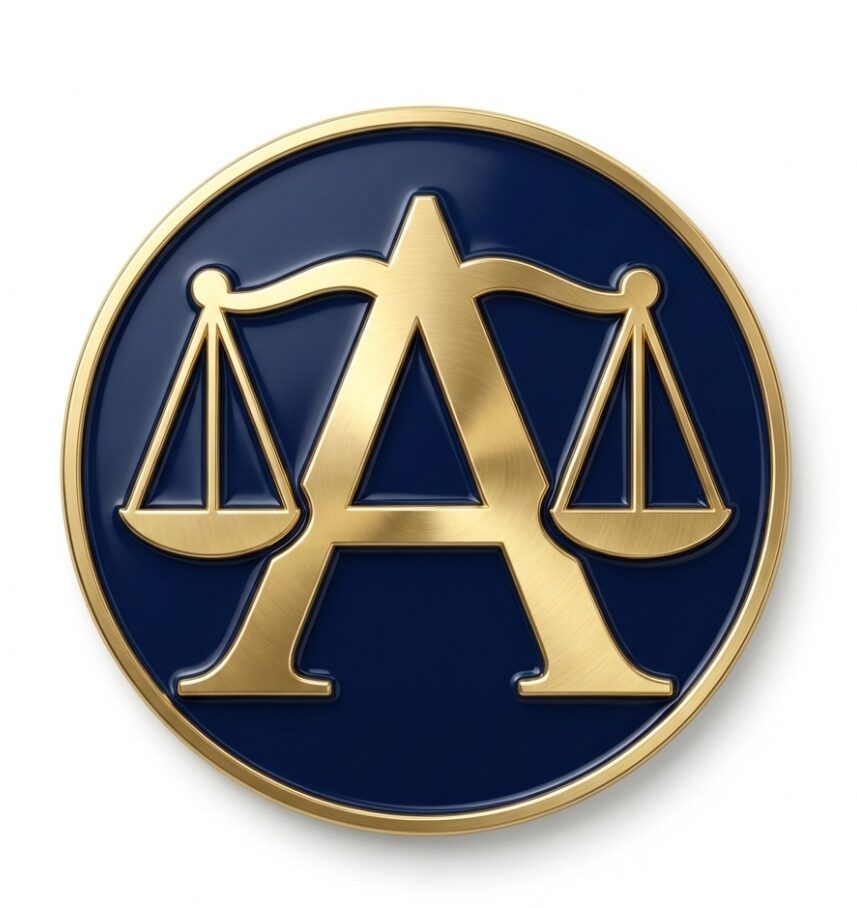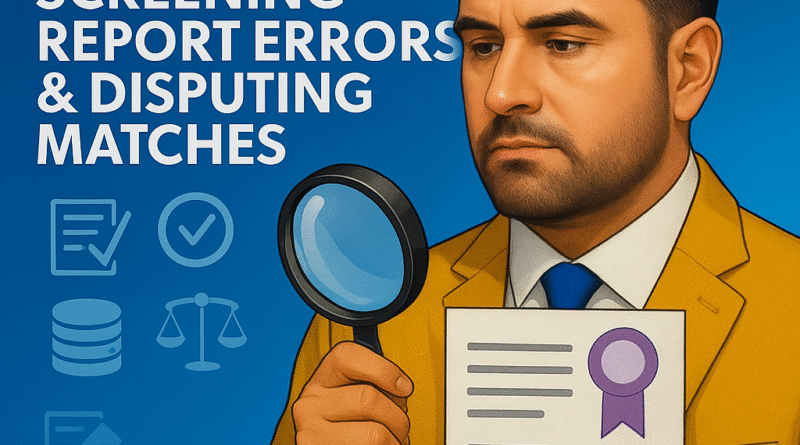Tenant Screening Mistakes: How to Dispute Bad Matches and Win Corrections Fast
Why tenant screening reports go wrong — and why it matters
Tenant screening reports compile credit, eviction, civil court, and criminal record data to help housing providers decide whether to rent to you. These reports are consumer reports under the Fair Credit Reporting Act (FCRA), so you have strong rights to access, dispute, and correct errors. Inaccurate matches are common: records from a different person with a similar name, outdated or sealed cases, duplicate entries, and clerical mistakes. Because landlords often deny applications quickly, learning how to spot errors and trigger a reinvestigation fast is essential.
Quick Guide (English)
- Ask for the report: If you were denied or charged more, you’re entitled to a free copy from the screening company named in the adverse action notice.
- Audit the data: Circle errors (wrong person, outdated, duplicate, expunged, dismissed, incomplete dispositions, wrong addresses, OFAC false hits).
- Dispute in writing to the screening company (not only the landlord). Attach proof. Keep copies. Certified mail is best.
- Timelines: The CRA must investigate within ~30 days (up to 45 if you add new documents later), correct or delete, and send you results and a free updated report.
- Tell the landlord: Send the corrected report and request reconsideration. If the landlord orders an updated report, the CRA must deliver it.
- Escalate: If unresolved, complain to the CFPB, FTC, or your State AG, and consider small claims or counsel for damages under the FCRA.
Most common error types you can dispute
| Error type | Typical cause | Fix you request |
|---|---|---|
| Mixed file / wrong-person match | Name-only or name+DOB match without full identifiers | Delete the item; require SSN or full DOB match; place “do not merge” alert |
| Outdated civil suit/collection/eviction | Beyond FCRA obsolescence limits or superseded by later order | Delete as obsolete or update with final disposition |
| Sealed/expunged/dismissed record still reporting | Courthouse feed not refreshed | Delete and confirm downstream updates to prior recipients |
| Duplicate listing | Same case pulled from multiple data sources | Remove duplicates; show one accurate entry with disposition |
| OFAC or watchlist false positive | Fuzzy name match; no date/SSN confirmation | Delete and add notation that you are not a match |
| Address/employment mix-ups | Merged data from other consumer | Correct to your verified history |
Step-by-step: correcting a tenant screening report
1) Get the report and identify the screening company (CRA)
If you were denied, required to use a co-signer, charged a higher deposit, or approved conditionally because of the report, the landlord must send an adverse action notice naming the consumer reporting agency (CRA) that supplied it and explaining your right to a free copy. Contact that CRA immediately and request the full report. You generally have 60 days after adverse action to claim the free copy.
2) Audit line by line and tag each problem
Compare every item with your records. Flag: wrong middle name, misspelled aliases, counties you never lived in, cases with a different SID (state ID), mismatched SSN digits, and entries missing a disposition (e.g., shows “filed” but not “dismissed”). Create a list of disputed items with case numbers and why each is wrong.
- Government ID showing full name and DOB.
- SSN masking letter or W-2/1099 (last 4 digits visible) to confirm identity.
- Court dockets, certified dispositions, expungement/setting-aside orders.
- Proof of mistaken identity (e.g., different middle name, height, or mugshot).
- Paid-in-full receipts for collections; satisfaction of judgment.
- Proof of address history to disprove records from other regions.
3) Send a written dispute to the CRA
Dispute directly with the CRA (and optionally with the landlord). Your letter should identify you, the specific items, and the reason each is inaccurate or incomplete, and should demand a reinvestigation. Include copies of your evidence. Send by certified mail with return receipt or via the CRA’s secure portal (save confirmation).
Subject: FCRA Dispute – Tenant Screening Report To: [Screening Company Name], Reinvestigations I dispute the following items as inaccurate or incomplete and request reinvestigation under 15 U.S.C. §1681i. 1) Case No. 19-EV-12345 (County A) – Not me. Different SSN and DOB. Please delete and place a mixed-file alert. 2) Criminal case 2017-CF-9876 – Dismissed 08/14/2018. Attached certified disposition; update to show “dismissed” and notify prior recipients. 3) OFAC watchlist flag – false positive. No matching identifiers. Please remove and confirm deletion. Please send me written results, a free updated report, and a list of recipients in the last 2 years to notify. Sincerely, [Name] [Current Address] [DOB] [Last 4 of SSN] [Phone/Email]
4) Know the clocks the CRA must meet
| Requirement | Time limit | Details |
|---|---|---|
| Forward your dispute to the furnisher | ~5 business days | CRA must send relevant information to the data furnisher (e.g., court index vendor/collector). |
| Complete reinvestigation | 30 days (up to 45 if you supply more info later) | Must correct, delete, or verify each item; cannot just “parrot” old data. |
| Results & free copy | Within 5 days of completion | Provide written results and an updated report if changes were made. |
| Notify prior recipients | Upon your request | CRA must send corrected info to landlords who received the report in the last 2 years. |
5) Ask the landlord to reconsider
After you receive the corrected report, email the property manager with a short, factual request for reconsideration. Attach the CRA’s results and highlight the corrections that matter to their screening criteria (e.g., “case dismissed” or “not my record”). Ask them to place your application back in queue or waive denial conditions.
Understanding match quality: what should count as a “hit”
Many false positives come from name-only searches. Good practice is to require multiple, consistent identifiers before linking a record to you.
| Match level | Identifiers used | Risk of false match | What to request |
|---|---|---|---|
| Poor | Name only or name + city | Very high | Delete unless DOB/SSN/unique ID confirms |
| Fair | Name + full DOB (or month/year) + address history | Moderate | Demand manual review of court file |
| Good | Name + DOB + last 4 SSN or state ID; docket confirms | Low | Ensure final disposition is reported |
What landlords and property managers must do
- Give adverse action notices when a report leads to denial, conditional approval, or higher deposit/rent; include the CRA’s name, address, and statement of your rights to a free copy and dispute.
- Use consistent criteria and allow time for correction if the applicant disputes a match.
- Consider HUD guidance on criminal records: blanket bans on anyone with any record may be discriminatory; individualized assessment is recommended.
- Observe state/local limits (e.g., “ban-the-box,” source-of-income protections, eviction record limits, salary history rules).
- Save the adverse action notice and write down the CRA’s name.
- Request your free copy of the report immediately.
- Mark each error and gather proof.
- Send a written dispute to the CRA with attachments.
- Calendar the 30-day and 45-day deadlines.
- Ask the CRA to notify prior recipients of corrections.
- Send the corrected report to the landlord and request reconsideration.
- If unresolved: file complaints (CFPB/State AG), consider small claims or consult counsel.
Template: landlord reconsideration email
Subject: Request to Reconsider Application – Corrected Screening Report Dear [Manager], I am writing to request reconsideration of my rental application for [address/unit]. The screening report used on [date] contained inaccuracies that have now been corrected by [CRA name]. The corrected report (attached) removes [briefly describe items]. Please review my application with this updated information. I remain interested and am available to supply any additional documents you need. Thank you for your time, [Name] [Phone]
State add-ons to know
FCRA sets the national floor. Several states add protections: for example, some limit reporting of eviction filings that did not result in a judgment; some require faster corrections; some restrict reporting non-conviction criminal records; and some provide damages or attorney fees under state fair-credit laws. Check your state’s consumer protection or fair credit reporting statute, plus local fair chance housing ordinances.
FAQ (English)
1) Do I dispute with the landlord or the screening company?
Both can help, but only a dispute to the screening company (CRA) triggers your FCRA reinvestigation rights. Send the CRA a detailed written dispute and copy the landlord.
2) How long will the investigation take?
Usually 30 days from the CRA’s receipt of your dispute. If you provide additional documents during the process, the period can extend up to 45 days.
3) Can a landlord keep the higher deposit after the report is corrected?
They should reconsider based on the corrected report. If they refuse without a legitimate reason, you can escalate with complaints or legal counsel; you may also pursue small claims for out-of-pocket losses.
4) What if the CRA “verifies” a record that is still wrong?
Send a second dispute with stronger proof and ask for a method of verification statement. Consider filing complaints and seeking legal advice, especially for mixed-file identity cases.
Further reading:
5) Will disputing hurt my credit score?
No. Disputes under the FCRA do not harm credit scores. Tenant screening CRAs may use data from your credit report, but exercising your rights does not lower your score.
6) Can eviction filings be reported forever?
FCRA limits most civil suits and judgments to 7 years (bankruptcies have different limits). Some states now restrict reporting of non-judgment eviction filings or require masking of old filings.
7) Are criminal convictions reportable without a time limit?
Under federal FCRA, convictions do not have a time cap, but several states restrict older or non-conviction records in housing decisions. Expunged/sealed matters should not appear.
8) What if my report shows an OFAC hit?
Demand the underlying identifiers. If it’s name-only, ask for deletion and a letter confirming you are not a match.
9) Can I see who else received my report?
Yes. Ask the CRA for the list of recent recipients (typically within the last two years for employment/housing) so they can be notified of corrections.
10) The landlord denied me without giving a reason. Is that legal?
If a consumer report influenced the decision, they must provide an adverse action notice with the CRA’s information and your rights to a free copy and dispute.
Legal/technical base (English)
- Fair Credit Reporting Act, 15 U.S.C. §1681 et seq. (consumer report access, accuracy, dispute/reinvestigation §1681i; adverse action §1681m; permissible purpose §1681b; obsolescence §1681c; civil liability §§1681n–o).
- Furnisher duties to investigate and correct inaccurate data after a CRA forwards a dispute (FCRA §1681s-2(b)).
- Adverse action notices for housing decisions influenced by a consumer report (FCRA §615/§1681m).
- HUD guidance encouraging individualized assessment of criminal records in housing (risk of disparate impact for blanket bans).
- State overlays (examples): California ICRAA/CCRAA; New York, Washington, and others limiting old eviction filings or non-convictions; local “fair chance housing” ordinances.
Conclusion
Screening errors are fixable. Use your FCRA rights to get the report, dispute inaccuracies with evidence, and enforce deadlines for correction. Then give the landlord the updated report and request reconsideration. If a CRA or landlord will not correct or reconsider, your next steps are regulatory complaints and, when appropriate, legal action to recover losses and ensure your housing application reflects the true record.
Do you have any questions about this topic?
Join our legal community. Post your question and get guidance from other members.
⚖️ ACCESS GLOBAL FORUM
